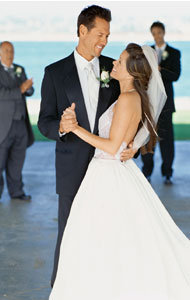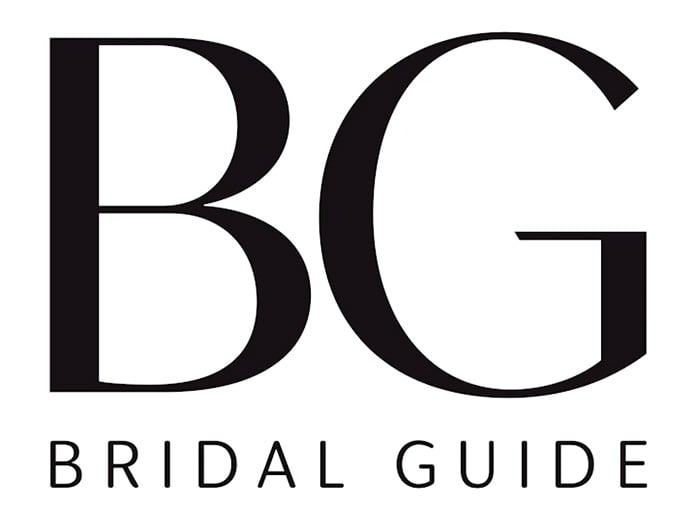Presenting both sides in the great debate between live and recorded music for your reception.
Deciding between hiring a live band or a DJ to spin recorded music is one of the biggest reception issues you'll face. Both have their pros and cons; ultimately it's a question of budget and taste (but then what part of wedding planning isn"t?). Both services generally offer a set price for four hours of music with play beginning right before or right after the cocktail hour, with an option to pay for overtime (if you'll want this, it's best to discuss it beforehand and have it written into the contract). Here is a comparison of the options, plus tips on contracts and reference checks.
Band Benefits
 |
Having a band gives you the dynamics of a live performance. It's traditional and distinctive, and the band you choose can do wonders to set the tone for your reception — from big band glamour to surf band funkiness. But booking one can be a costly endeavor, and your musical selections will be limited by the band's repertoire and style.
Popular bands get booked far in advance, so give yourself at least six months for the hiring hunt. To find the right band, ask friends and wedding professionals for referrals and check your local newspaper for band listings. Once you've found a few candidates, make sure they:
- are available on your wedding date
- can play the songs you and your fiance love as well as a variety of music for your guests.
- are in your general price range
Bands may charge either a flat fee or per musician, per hour. Most will negotiate, but it doesn't pay to keep talking if there's an enormous disparity between their price and your budget. You'll also need to determine if the band's size meets your needs - some insist on a minimum or maximum number of pieces (musicians). Ask which instruments are offered, how regularly the musicians play together (the more often, the better rehearsed and more current their repertoire), and how frequently the band works weddings.
If the answers to these questions are satisfactory, it's time to give the band a listen. Ask if they're giving a live performance you could attend (but be wary if they invite you to stop by and hear them at a wedding, since they're likely to use your wedding as a sales opportunity too). Often this won't be possible and you'll need to review a tape instead. If that's the case, be sure to request a tape featuring the same number of musicians you're considering — listening to 10 pieces when you only want five won't give you a clear picture of how the band will sound.
Listen for:
- Balance: Is one instrument in particular drowning out the others?
- Vocals: Do all the musicians in the group sing, or just the vocalist? Do you like how their voices sound?
- Quality: If there's a synthesizer, does it sound tinny or obviously electronic? A good keyboard is almost indistinguishable from the instrument it's mimicking.
- Composition: Are the musical arrangements creative, or does every song sound just like the one before it?
- Preparedness : How easily does the band move from one song to another? Are the sets organized or do the musicians seem to be scrambling for the next number?
- Repertoire: Is there an ample array of musical styles?
If you're watching a video or live performance, critique the appearance of the musicians as well. (If you're only hearing a tape, then ask to see a picture.)
Happy with what you heard? The final step before deciding is to sit down and meet with the bandleader. Remember, if he is going to emcee your wedding, you need to be absolutely sure you like his style and personality. The interview is also your chance to iron out the details of what the band offers and to make sure the bandleader understands what you're looking for.
To give him a sense of what you want, talk about your impression of the audition tape. You might even create a checklist of songs you did and didn't like, but don't shy away from a band because you didn't like one or two selections. Audition tapes try to reflect the full scope of the musicians' abilities. It doesn't mean that every style of music has to be played at your wedding. Ask to see their play list for a sense of the band's repertoire. It's also helpful to mention which artists or types of music you like and any songs you definitely don't want played at your wedding.
As for requests, some bands discourage brides from making long lists of songs they want played. It is fair, however, to put in several requests ahead of time (in case they need to be learned—which shouldn't cost extra), and make sure the band is willing to oblige requests from guests.





Comments
Ascension Groov... replied on Permalink
Hiring a band